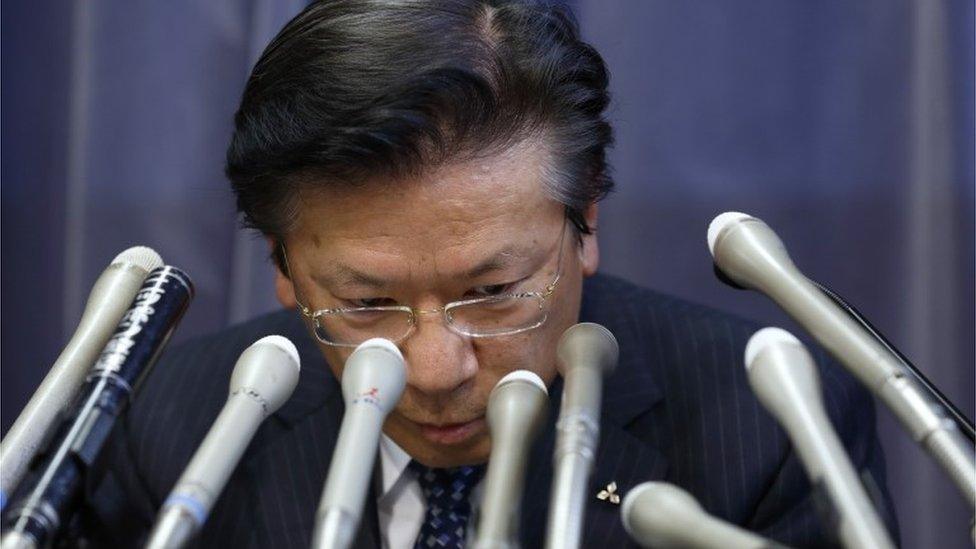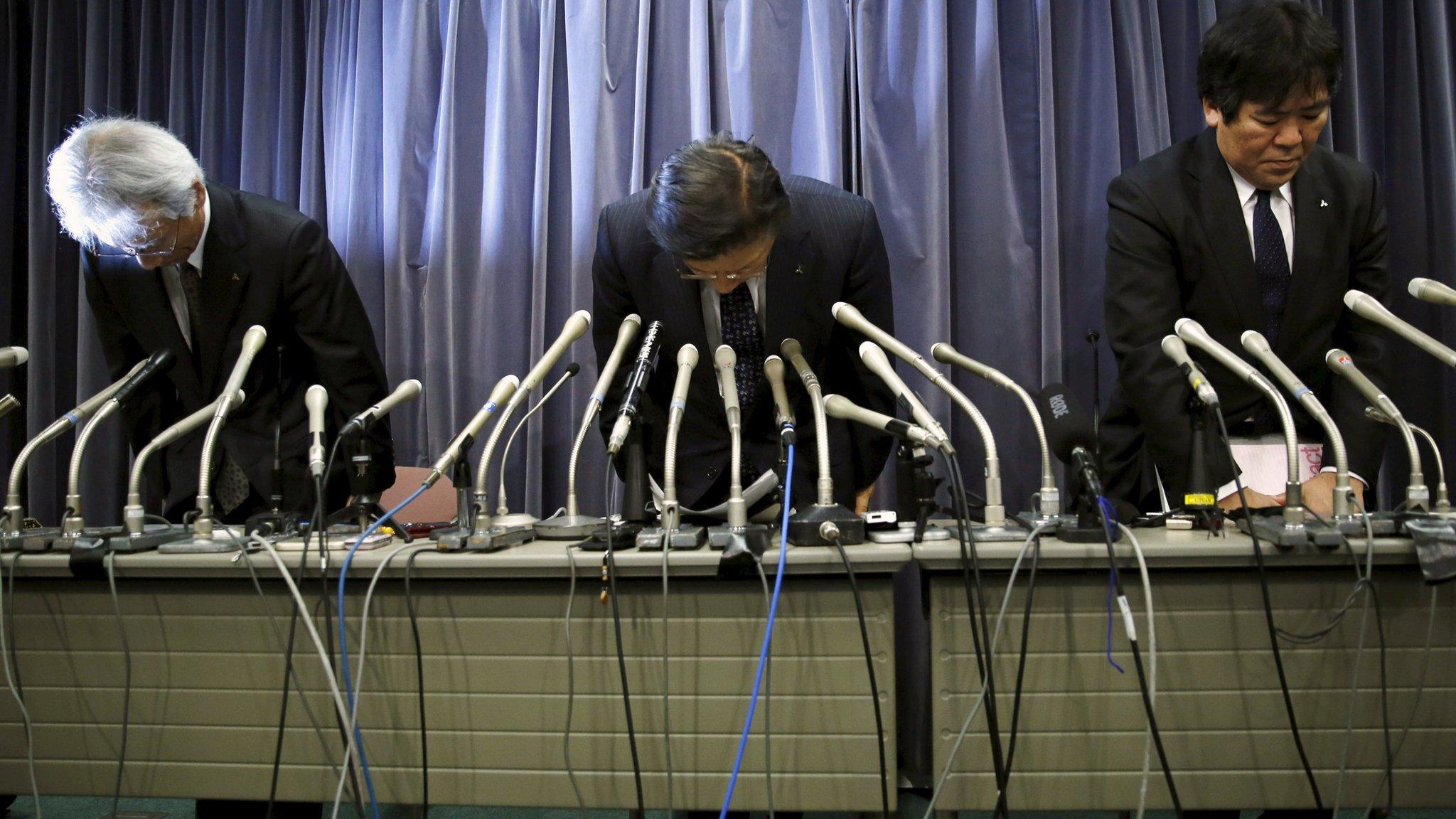When saying sorry is the only thing to do
- Published

Saying sorry is an art in Japan. It is thought there are at least 20 ways to do it.
Apologising is very much part of Japan's corporate culture - and the person at the top often has to take the fall.
And recently there have been lots of reasons why Japanese bosses have had to say they're sorry.
Takata, Toshiba - and now Mitsubishi Motors.
Bowing in apology in the customary Japanese way to show contrition, Mitsubishi's boss Tetsuor Aikawa told a packed news conference how sorry he was about what's become the latest scandal to hit Japan's sixth-largest car-maker.
Although Mr Aikawa says he himself had no idea what was going on at the company, he still felt responsible.
Adjustment
Unnamed employees are thought to have committed this corporate "crime", which basically made some "mini-cars" manufactured by Mitsubishi appear more fuel efficient than they actually are.
So basically that means when a Japanese car-buyer was choosing which car to buy, these models may have come up as a top pick because they appeared to be a more sensible choice financially.
But I've also been told that this is not an uncommon practice - and many more Japanese car-makers could be at fault.
Pressure
Japanese auto-makers have been under their own pressure recently from a stronger yen, as well as the supply chain disruption they've faced from the deadly earthquakes earlier this month.
Mitsubishi has undoubtedly been affected by financial issues, but it's likely to be the reputational damage that it will struggle to recover from.
Back in the early 2000s, Mitsubishi admitted to lying about defects in its cars, and suffered from huge recalls which cost billions.
This time round, the company has effectively broken the trust of its consumers yet again.
Saying sorry may be just about the only thing Mitsubishi can do.
- Published20 April 2016
